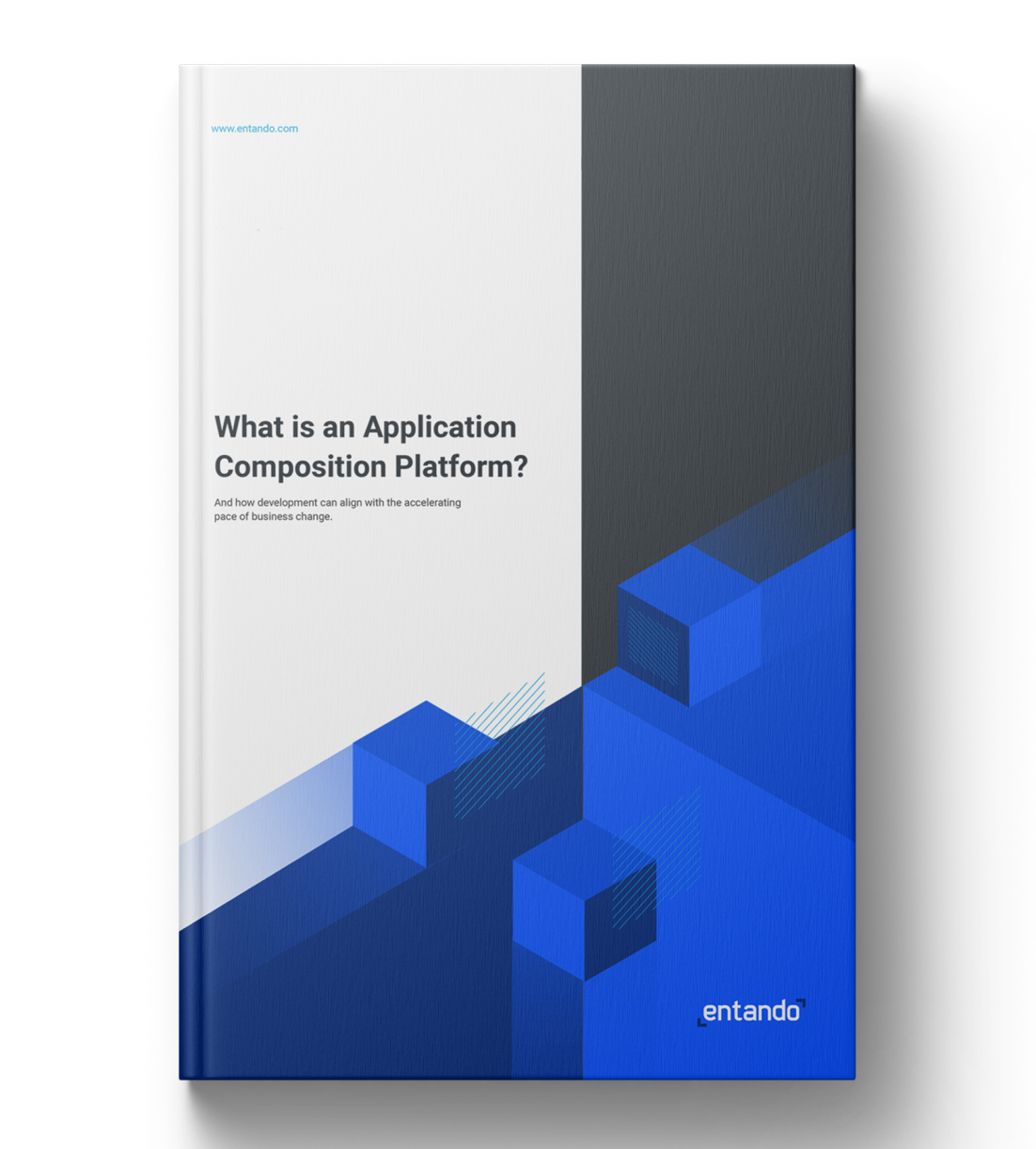
Why The Future Of Application Development Is Composable
Here’s a look at what it means to develop composable business applications and how it’s going to help your organization build better apps faster.
In order to become an industry leader, you need to outpace the rate of your competitors’ innovation. You have to spend your time focused on building better apps and online experiences more quickly.
But as your organization grows, what you might find is that your teams are spending just as much (if not more) time managing technical debt and legacy systems as they are creating something new. And because of that, you are only able to make incremental innovations, and often on a timetable that is much too slow to gain any creative momentum.
Thus, what is holding your organization back isn’t your lack of insight, talent, or skill. You have all that. What’s holding you back are the systems you’re employing in the service of those insights, talents, and skills. They’re too clunky and outdated. They’re slow and inefficient.
In order to rise to these challenges, enterprises need to rethink the way they architect not only their app dev process, but also their organizational structure. To that end, we here at Entando advocate for what Gartner has called a composable business philosophy. Composable business can be defined as “creating an organization made from interchangeable building blocks.” These building blocks are organized around specific business capabilities.
Here’s a look at what it means to develop composable business applications and how it’s going to help your organization build better apps faster.
Leveraging End-to-End Modularity

Modularity has been an evolving movement in software development. Whereas the earliest applications were built as monoliths (and that still works for some applications today), an increase in complexity and need for functionality has driven greater degrees of modularity.
This has resulted in the philosophy of DevOps, wherein development teams have separated backend development from the frontend, and then further breaking down backend functionality into separate microservices.
Nevertheless, for many enterprises, the frontend monolith remains. And it’s slowing down innovation. Thus, micro frontends have become the latest innovation in modularity, allowing development teams to organize their projects around business capabilities that can be developed, deployed, and updated separately from one another. This also allows your teams to use the tools and frameworks that they like and that work best for them, decreasing the number of constraints placed upon them.
Having a composable business means employing principles of modularity from end-to-end, starting with your Kubernetes infrastructure and extending all the way up to your frontend.
Bridging the Gap Between Dev, Ops, Design, and Business Requirements
As smart enterprises look to the future of application development, they are seeking to architect apps for the cloud. For many, that means deploying applications in containers on Kubernetes. At Entando, we have built our platform specifically for organizations who have implemented Kubernetes deployments.
And that’s because a major challenge organizations are facing is how to build enterprise applications on top of Kubernetes in an efficient and effective manner. In order to do so, organizations must begin to think of DevOps not only in terms of development and deployment, but also UX design and aligning with the overall business requirements.

Creating pipelines that take this holistic understanding into account will decrease friction and inefficiencies not only between your dev team and ops team, but throughout your entire organization.
By leveraging end-to-end modularity and employing tools and processes that connect the different stakeholders in your project, you can increase the efficiency with which you build and update components, as well as their overall effectiveness. And that’s because since components can be updated separately from the rest of the application, you increase your ability to iteratively improve them because of the low barrier to experimentation that this modularity provides.

Increasing Reusablilty and Standardization
When building applications with a composable business strategy, you can more easily leverage reusability and standardization. For example, you can create common components that will be used across multiple projects, bundle them together in packaged business capabilities, and then store them in a common catalog to then be pulled and deployed in another application.

Not only does this create a streamlined approach to composing applications from standard components, it also decreases the level of complexity your developers will need to interact with when it comes to Kubernetes. As most enterprise architects know, while Kubernetes offers many benefits for your deployments, it introduces a level of complexity that developers would rather not have to deal with. Having a composable business strategy helps you solve for that.
Build composable business applications with Entando.
If you run containerized deployments, you understand the benefits of Kubernetes. You also understand how complicated it can be and how difficult it can be to gain developer adoption. It feels like there should be an easier way.
That’s why we created a platform that makes it easy to build applications on Kubernetes using modular components.
Entando is an application composition platform for building enterprise web apps on Kubernetes. We want to change the way enterprises think about building their apps, sites, and portals in order to promote developer productivity in a Kubernetes environment.
With Entando, you can:
- Bootstrap an application from a customized template.
- Accelerate app development to update iteratively.
- Simplify deployments by abstracting the complexity of Kubernetes.
We integrate trusted open source technologies and extend their functionality to give you a cohesive and streamlined developer experience with easy-to-use patterns. From deploying on Kubernetes to creating modular backend and frontend architectures using your current technologies, Entando helps you at every layer of the stack.
Entando is open source with available enterprise support and services. Begin developing on the platform today, and get a quote to see how our team can help your enterprise build better apps, sites, and portals––faster.
